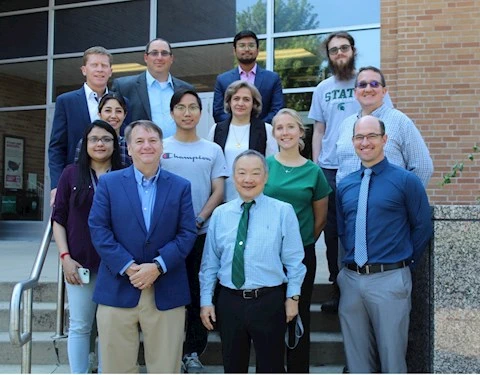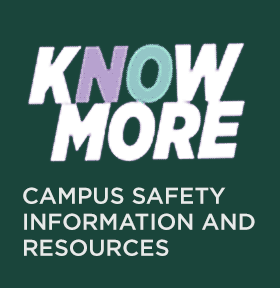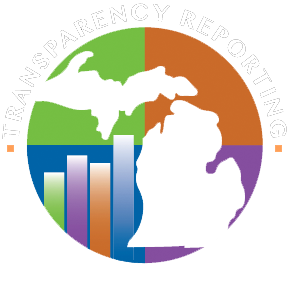Michigan State University College of Engineering recently celebrated the end of the Research Experience for Teachers (RET), a summer program supported by the National Science Foundation for middle, high school and college educators.
“RET’s 15-year run is a major accomplishment,” said Engineering Dean Leo Kempel. “Many students across our state have and will benefit from the enhanced classroom experiences offered by inspiring teachers who participated in this program.

“We are grateful for the support from the National Science Foundation and very proud of this powerful example of how our College of Engineering makes an impact every day in our state,” Kempel added.
The RET program was led by Drew Kim, assistant to the dean for K-12 outreach, in collaboration with MSU Foundation Professor Xiaobo Tan, from the Department of Electrical and Computer Engineering (ECE).
“We wanted to offer research experiences for area teachers that helped them develop new lessons and hands-on activities for their STEM classes and ways to connect with their communities,” said Kim. “Since the beginning, RET engaged teachers from area middle, high school and community colleges each summer.”
Six local STEM educators were selected to participate in the 2024 program:
- Olivia Becker, Okemos High School
- Orion Smith, East Lansing High School
- Thamira Hindo, Lansing Community College
- Brian Harrod, Lansing Community College
- Maissam Khalil, Lansing Community College
- Kevin Mayes, East Lansing High School
Each teacher was paired with a faculty mentor and one or more doctoral student mentors. Following the success of the 2023 program format, this year’s program was also hybrid with teachers coming in one day a week.
Olivia Becker from Okemos High School partnered with ECE Professor Wen Li and graduate student Zebin Ziang to explore insertion strategies for small neural implant devices research. This project studied the impact of neural devices on the surrounding phantom tissue during its insertion.
“On Tuesdays we met on campus for meetings with the curriculum specialist to help us with our lessons and to meet with my grad student to run tests on and plan simulations for the software,” said Becker. “There are many aspects of life that we don’t think of as being created by engineers, so it was interesting to explore that.”
Orion Smith from East Lansing High School was paired with ECE Assistant Professor Sunil Kishore Chakrapani and graduate student Subal Shama for a project on ultrasonic additive manufacturing to fabricate multimaterial structures.
“We explored the use of machine learning data fusion techniques to analyze and bring together multiple data sources for the purpose of predicting the microstructural condition of Grade 91 steel,” Smith said. “As someone who doesn’t share the researcher’s expertise, it has been thrilling to experience their pioneering work.”
Thamira Hindo from Lansing Community College worked with Biomedical Engineering Assistant Professor Zhen Qiu and graduate student Anirban Chraborty to focus on developing MEMS biomedical sensor modules mounted to a multi-axis robotic arm and controlled by an Arduino microcontroller.
Brian Harrod from Lansing Community College was paired with Computer Science and Engineering Professor Arun Ross and graduate students Redwan Sony, Parisa Farmanifard, and Debasmita Pal. They conducted research on the use of generative AI tools, such as ChatGPT, Gemini, and DALL-E to develop innovative teaching materials for high school students.
“This experience has increased my enthusiasm and confidence in teaching these topics,” said Harrod. “My students will benefit from the updated curriculum that includes hands-on projects and exposure to current research in AI, which I believe will inspire and motivate them to explore STEM fields more deeply.”
Maissam Khalilteamed from Lansing Community College teamed with ECE Associate Professor Vaibhav Srivastava and graduate student Dong Mangalin to study how autonomous vehicles and humans interact and how the overall system will be used to design human-centered assistive strategies for the vehicle.
Kevin Mayes from East Lansing High School worked with ECE Professor Xiaobo Tan and graduate student Erick Baskell to develop a Mini-USV (unscrewed surface vehicle) project proposal. After creating a model with a larger hull, the USV will be tested in a tank to compare the multiple control algorithms programmed into it and serve as testing control of larger USVs.
The last cohort of research groups gathered in MSU’s Engineering Building on July 26, 2024, to present their findings and celebrate the conclusion of the 15-year program.
Written by Maggie Dillon, a student writer and public relations assistant in the MSU College of Engineering Marketing and Communications office.
MSU College of Engineering Media and Public Relations page

